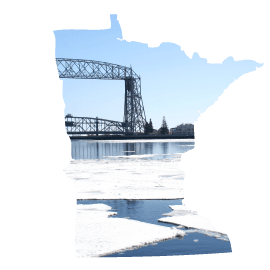Alternate Route Usage and Providers:
Minnesota
Expanding the Pool of Teachers Policy
Analysis of Minnesota's policies
Although it does not limit the usage of its alternate route, Minnesota does place restrictions on providers.
Minnesota passed new legislation in March 2011 that allows for the creation of new teacher training programs. School districts or charter schools may create and implement a teacher training program; however, it must be in partnership with a college or university. Nonprofit providers are prohibited from operating an alternate route independently. A school district may partner with a nonprofit only after the district has consulted with a college or university.
Minnesota is commended for having no restrictions on the usage of its alternate route with regard to subject, grade or geographic areas.
Recommendations for Minnesota
Encourage diversity of alternate route providers.
Minneosta should specifically authorize alternate route programs run by local school districts and nonprofits, as well as institutions of higher education. Districts should be able to provide training without a required partnership with colleges and universities. For example, districts may want to provide training in a specific curriculum, something that most colleges and universities are reluctant to do.
State response to our analysis
Minnesota recognized the factual accuracy of this analysis. However, the state asserted that education-related nonprofit organizations are allowed to operate alternate route programs. Minnesota contended that "the law requires consultation with a Minnesota college or university but the development and ownership of the program may rest outside of higher education."
Select another topic
Delivering Well Prepared Teachers
- Admission into Preparation Programs
- Elementary Teacher Preparation
- Elementary Teacher Preparation in Reading Instruction
- Elementary Teacher Preparation in Mathematics
- Middle School Teacher Preparation
- Secondary Teacher Preparation
- Secondary Teacher Preparation in Science
- Secondary Teacher Preparation in Social Studies
- Special Education Teacher Preparation
- Assessing Professional Knowledge
- Student Teaching
- Teacher Preparation Program Accountability
Expanding the Pool of Teachers
Identifying Effective Teachers
- State Data Systems
- Evaluation of Effectiveness
- Frequency of Evaluations
- Tenure
- Licensure Advancement
- Equitable Distribution

